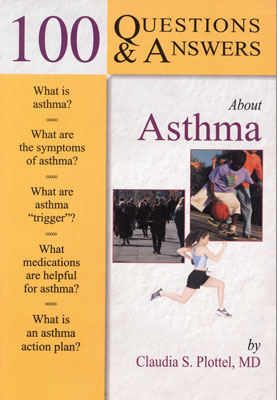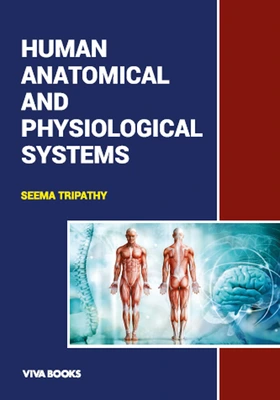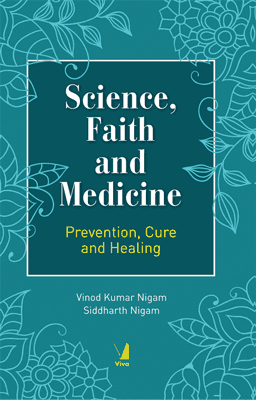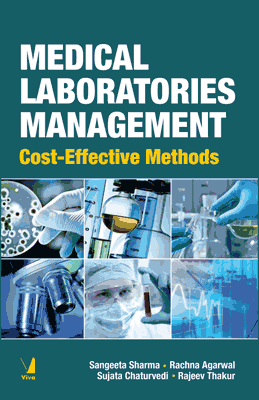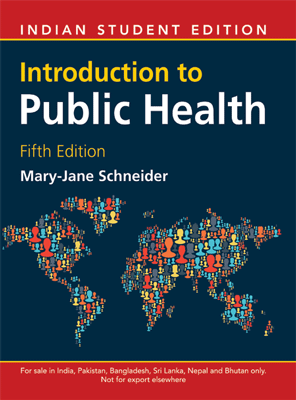100 Questions & Answers about Asthma
100 Questions & Answers about Asthma
₹225.00 ₹250.00 Save: ₹25.00 (10%)
Go to cartISBN: 9780763747930
Bind: Paperback
Year: 2007
Pages: 238
Size: 165 x 229 mm
Publisher: Jones & Bartlett Learning
Published in India by: Jones & Bartlett India
Exclusive Distributors: Viva Books
Sales Territory: India, Nepal, Bangladesh, Sri Lanka
"Invaluable! A clear, comprehensive, and sympathetic guide to the causes, symptoms, treatment, and day-to-day problems of living with asthma."
-Gemma Goode, Asthma Patient
Description:
EMPOWER YOURSELF!
If you are among the approximately 17 million Americans who suffer from asthma, or have a friend or relative who does, this book offers the information you need to manage and cope with this condition. The only book to provide the doctor's and patient's views, 100 Questions & Answers About Asthma gives you authoritative, practical answers to your questions about treatment options, coping strategies-for both patient and family-sources of support, and much more, Written by Dr. Claudia S. Plottel, a world-class asthma specialist, this clearly written, readable book offers the latest medical knowledge and practical tips on what asthma is and what you can do to treat it effectively. Featuring "insider" advice from an asthma patient, this book is an invaluable resource for anyone coping with the physical and emotional turmoil of this disease.
Target Audience:
People who suffer from asthma or have a friend or relative who does- this book offers the information you need to manage and cope with this condition.
Contents:
Part 1. Facts, Theories, and Controversies • Questions 1-12 update useful information about asthma, including: • What is asthma? • How many Americans have asthma? • Is it true that asthma is on the upswing? • Why is asthma so common? • What causes asthma? • What is the contemporary view of asthma, and how does it differ from the traditional?
Part 2. Symptoms and Diagnosis • Questions 13-31 describe the symptoms of asthma and methods of diagnosis, such as: What are the symptoms of asthma? • Axe there medical conditions that can mimic asthma or make it more severe? • Could my symptoms be due to a condition other than asthma? • How is the diagnosis of asthma established? • What diagnostic tests are used to help diagnose asthma?
Part 3. Classification and Variant Forms • Questions 32-40 highlight the NAEPP's asthma classification and review atypical forms of asthma, including: • What is the National Asthma Education and Prevention Program (NAEPP)? • What is cough-variant asthma? • What is exercise-induced asthma? • What is the "asthmatic triad"? • What is occupational asthma?
Part 4. Asthma: Treatment Strategies • Questions 41-56 detail different methods of managing and treating asthma: • What are written asthma management and action plans? • Why should I use medicine if feel fine? • What are the goals of asthma treatment? • My asthma is active; how do I know whether I should go to the nearest hospital emergency room? • How do I know if my physician is a specialist in asthma treatment?
Part 5. Asthma Medications: New and Old • Questions 57-72 focus on medications used in asthma treatment: • What medications are helpful for asthma? • What is the difference between a medicine's generic name and brand name? • Why are so many asthma medicines in inhaler form? • What is the correct way to use my dry powder inhaler (DPI)? • How can I tell when my inhaler is nearly empty? • Are steroids dangerous medicines?
Part 6. Asthma: A Healthy Lifestyle • Questions 73-83 emphasize day to day living with asthma, including: • What's new in asthma treatment? • My asthma worsens each month near my period. Is that possible? • Should I take extra vitamins or mineral supplements because I have asthma? • Is obesity related to asthma? • Is caffeine good for people with asthma? • What sports are especially beneficial for asthma? • Is asthma mostly a psychological disease?
Part 7. Special Topic: Asthma and Pregnancy • Questions 84-88 answer common questions of women in pregnancy, such as: • Are asthma medications harmful to my unborn child? • Will pregnancy worsen my asthma? • Will I be able to breast-feed my baby if I’m taking medicine for my asthma
Part 8. Special Topic: Asthma and Children • Questions 89-100 address specific concerns parents of children with asthma may have, for instance: • Will my child outgrow his or her asthma? • Should I take my young child to a physician who specializes in asthma? • How can I make sure that my child's school staff can deal with his or her asthma? What about summer camp staff? • Why should my child bother using a peak-flow meter?
Appendix
The Appendix contains a selective listing of resources, publications, and references for further information about asthma. • Glossary • Index
About the author:
Claudia S Plottel, MD, FACP, FCCP holds the rank of Clinical Associate Professor of Medicine at the New York University (NYU) School of Medicine, where she is a member of the division of Pulmonary and Critical Care Medicine. Dr Plottel earned her Bachelor's degree from Bryn Mawr College and her MD from the Medical College of Pennsylvania. She pursued her post-graduate training in Internal Medicine, followed by a fellowship in Pulmonary and Critical Care Medicine, at Bellevue Hospital Centre in her hometown of New York City. A Fellow of the American College of Physicians as well as of the American College of Chest Physicians, Dr Plottel has a particular interest in the diagnosis and treatment of adult asthma. In addition to her medical teaching and writing, Dr Plottel maintains an active clinical practice in Manhattan dedicated to the diagnosis and treatment of lung disease, with a particular focus on asthma.
